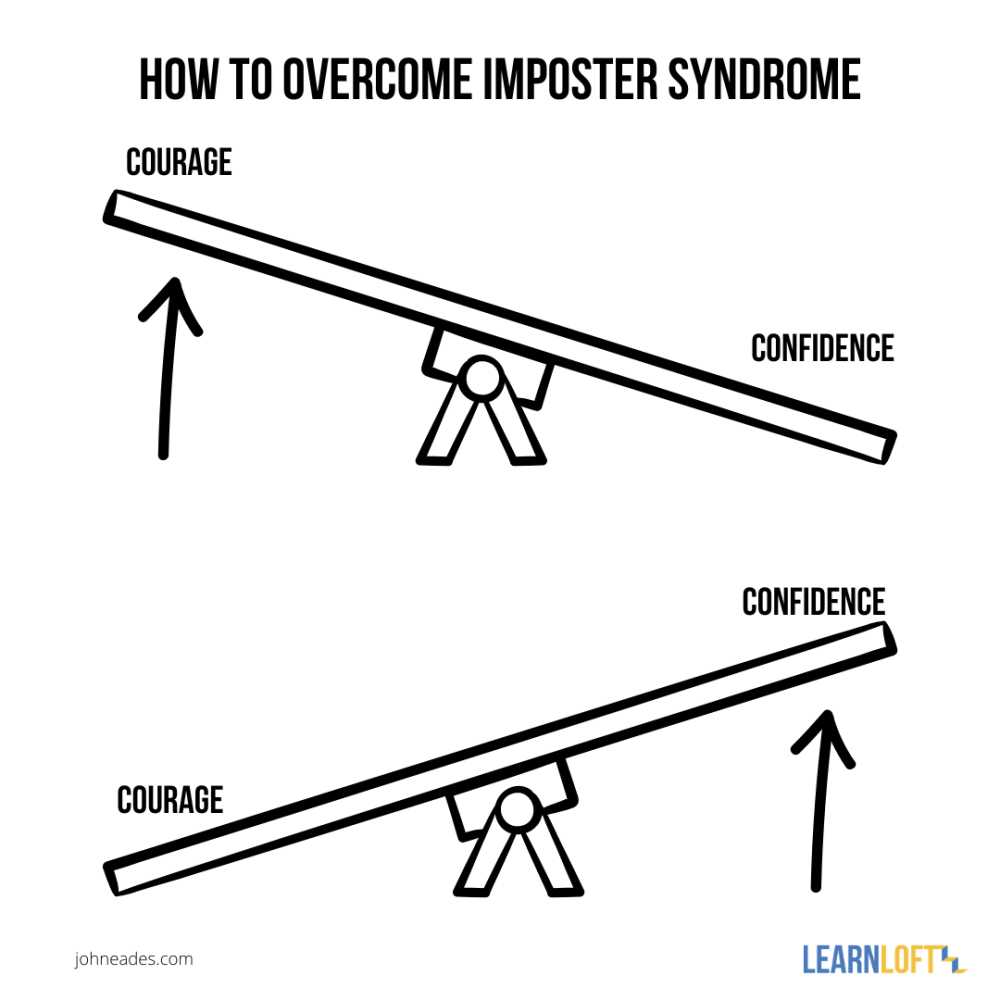Comments
- No comments found

Imposter syndrome stems from a sense of inadequacy, insecurity, and insignificance.
They wonder, “What if people figure me out?” or “How far and fast would my team run in the opposite direction if they knew what I was thinking?” These thoughts alone don’t disqualify you from leading, but figuring out how to move forward and act despite them is critical.
Imposter syndrome is gnawing feelings of self-doubt and incompetence coupled with the dread of being exposed as a fraud. Whether this sounds exactly like you or if you have had thoughts in the same family, this column is for you.
Research from Predictive Index’s People Management Report asked questions about what makes a world-class manager. They found that the #1 skill employees value from their managers is confidence.
Leaders with authentic confidence steeped in the work and self-awareness are contagious.
Henry Ford famously said, “Whether you think you can or think you can’t, you are right.” Ford was talking about confidence, which is defined as the belief in oneself and one’s ability to succeed. It comes from a Latin word meaning “to have full trust.”
Confidence is not cockiness or arrogance. It is not masking gaps inside by portraying something different on the outside. Confidence in leadership isn’t ‘Every team member loves me,’ confidence is ‘I will be a great leader to them even if they don’t.’
As important as confidence is in leadership and life, it’s incomplete without courage. Those who fail to develop a courageous muscle by taking actions, big or small, aren’t inspiring or worth following.
Those who fail to develop a courageous muscle by taking actions, big or small, aren’t inspiring or worth following.
C.S. Lewis famously said, “Courage is not simply one of the virtues but the form of every virtue at the testing point, which means at the point of highest reality.” Lewis got it right because every skill a leader needs to possess will meet its testing point at courage.
However, the value of courage is consistently overlooked. Part of this is because when we first think of courage, we tend to think of heroic acts like landing a plane on the Hudson or saving a company going up in flames. While these are courageous acts, it is a far cry from how it’s leveraged by leaders daily. Most courageous acts are tiny, but never insignificant.
Most courageous acts are tiny but never insignificant.
Small courageous acts stacked upon each other build confidence. I define courage in Building the Best as the “ability to do something that frightens you.” It comes from the Latin word cor, meaning heart. In other words, acting from your heart and doing things that frighten you is a sign of leadership.
Acting from the heart and doing things that frighten you is a sign of leadership.
Do you remember that playground equipment as a kid called a Seesaw? When a kid on one side sat down, the other kid went up. Confidence and courage require a similar mindset. Ideally, both confidence and courage would always be high and applied. However, for most, this is rare. LearnLoft coaches leaders to leverage the visual image of a seesaw for confidence and courage.
When confidence is low, courage must be high.
When courage is low, confidence must be high.

As easy as this is to write or read, the application, it’s tough. When you don’t have a lot of belief in yourself and the ability to succeed, it’s challenging to act courageously. Conversely, when you are frightened, it’s challenging to believe in yourself. But if it were easy, everyone would do it.
If leadership were easy, everyone would do it well.
Since being confident and courageous isn’t easy, here are a few tactics and techniques to help you:
Eliminate the words that protect you from failure because they set you up for it.
Most managers are afraid of failure or being negatively judged for an idea. To cope, they try to soften the blow by saying, “I am going to try…” or “I might be able to…” or “We might.” Instead, replace those with courageous words like, “I am going to,” “We will,” or “We can.”
Removing "Extreme Globalizing Words" like “never,” “always,” and “every time,” are also critical because they eliminate hope for a positive future.
Our brains are fascinating because we have an almond-shaped mass called an Amygdala. This part of our brain has become best known for its role in fear processing. This means that this area in our brain controls fear and our responses to it. You are naturally wired to run from or avoid things that can be harmful. So, writing down the worst possible outcome from acting on something that frightens you often provides insight that the worst scenario isn’t actually all that bad.
The Spotlight effect is a common psychological phenomenon where we overestimate the degree to which other people notice or observe our actions, behaviors, appearance, or results. Sahil Bloom wrote in a recent column, that there are two simple takeaways to the Spotlight effect:
We think everyone is staring and noticing us, but they aren’t.
Even if they are, they quickly forget about it.
If you are going to lead with confidence and courage, it’s going to require you to stop overestimating the degree to which others are noticing you. I am not asking you not to care what others think, just to stop overestimating that everyone is watching your every move because they are too carried up with their own problems.
It takes work to choose confidence and courage daily. However, if you strengthen your words, write down the worst possible outcome of an action, and stop overestimating the degree to which others notice, you will be on your way to acting like the best leaders.
John is the CEO of LearnLoft, author of, F.M.L. Standing Out & Being a Leader and host of the 'Follow My Lead' Podcast. He writes or has been featured on Inc.com, LinkedIn Pulse, TrainingIndustry.com, eLearningIndustry.com, CNBC Money, and more. John completed his education at the University of Maryland College.
Leave your comments
Post comment as a guest